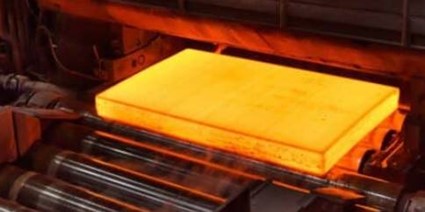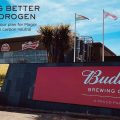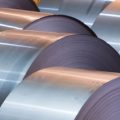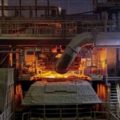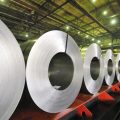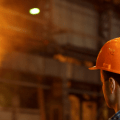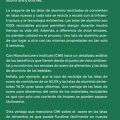SSAB has announced that it has just produced the world’s first fossil-free steel and delivered it to its first customer, Sweden’s Volvo Group. Hybrit technology has also been used in the process, for the rolling of this first steel with 100% fossil-free hydrogen instead of coal and coke.
The company said it would deliver the steel to truck maker Volvo AB as a trial before full commercial production in 2026 on a global scale. Volvo has said it will begin production in 2021 of prototype vehicles and green steel components.
Hybrit started trial operations at its pilot green steel plant in Lulea in northern Sweden a year ago. It will aim to replace coking coal, traditionally needed for making steel from ores, with renewable electricity and hydrogen. Hydrogen is a key part of the EU’s plan to achieve zero net greenhouse gas emissions by 2050.
With Hybrit technology, SSAB has the potential to reduce Sweden’s total carbon dioxide emissions by approximately ten percent and Finland’s by approximately seven percent.
SSAB, LKAB and Vattenfall created Hybrit, Hydrogen Breakthrough Ironmaking Technology, in 2016, with the aim of developing a technology for fossil-free iron and steelmaking. In June 2021, the three companies were able to showcase the world’s first hydrogen-reduced iron sponge produced at Hybrit’s pilot plant in Lulea.
“We hope this will inspire others to want to accelerate the green transition,” said Martin Lindqvist, president and CEO of SSAB. He added that “the world’s first fossil-free steel is not only a breakthrough for SSAB, it is proof that it is possible to make the transition and significantly reduce the global carbon footprint of the steel industry”.
Sweden’s Minister of Trade and Industry, Ibrahim Baylan, has also said in response to the news that “industry and especially the steel industry generate large emissions, but they are also an important part of the solution. To drive the transition and become the world’s first fossil-free welfare state, collaboration between business, academia and the public sector is essential”.
With Hybrit technology, SSAB has the potential to reduce Sweden’s total carbon dioxide emissions by approximately 10 percent and Finland’s by approximately seven percent. Coal-fired steel production accounts for about 8% of global greenhouse gas emissions.
It aims to replace coking coal, traditionally needed for making steel from ores, with renewable electricity and hydrogen. Hydrogen is a key part of the EU’s plan to achieve zero net greenhouse gas emissions by 2050.

